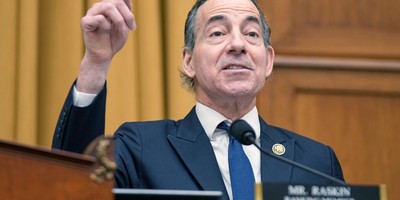WASHINGTON -- If Iraqis could elect America's next president, chances are good that the next occupant of the Oval Office would be Gen. David Petraeus.
Barring that unlikely development, John McCain will do. Or so I hear from an Iraqi journalist with whom I've corresponded the past couple of years, a woman whose family was once courted by Saddam Hussein but who later became a victim of his torturers.
Mayada al-Askari, about whom I've written previously, is today a reporter for the Gulf News. Although she lives in Dubai, she visits and writes extensively about Iraq and has regular access to both American and Iraqi leaders there.
Her Iraqi roots run deep. One grandfather was the Arab commander for T.E. Lawrence (Lawrence of Arabia), while another was one of the first Arab nationalists. Other family members have held prominent government positions.
Our correspondence, which has included exchanges of family photos and personal histories, has provided a window into the confusion and ambivalence many Iraqis share with Americans. Mayada's missives, which she has agreed to let me excerpt here, haven't always been easy to read and often betrayed resentment mixed with gratitude.
She once angrily told me of having to start each day looking at newsroom photographs of dead babies, raging against my own sanitized exposure to the war. She wrote of friends killed and disappeared.
Mayada knew what she was talking about. Before the war, she was part of a roundup of Baghdad publishers arrested and imprisoned when someone printed anti-regime leaflets. Mayada's internment and torture in Baladiyat Prison, along with 17 other women cellmates who suffered much worse, were the subject of Jean P. Sasson's 2003 book, "Mayada, Daughter of Iraq."
Recommended
In the course of the war, Mayada sometimes insisted that the U.S. had to leave for the violence to stop. Like many Americans, she was enraged that no plan was in place for the day after:
"All the resistance, insurgents, party militias and other forces that came through ... all this would not have taken place if the coalition forces had a clear plan for the day after. ... Your soldiers need to return home, as more fighting and killing will not solve anything."
At other times, she insisted that a U.S. withdrawal would plunge Iraq into a ceaseless civil war and genocide.
In June 2006, she wrote: "Tell him (Bush) we are ever thankful for his ousting the dictator, but to forget democracy and announce martial laws, and put an end to the blood bath and misery."
By April 2007, Mayada was critical of the Democrats and their promises to bring the troops home. Should that happen, she wrote, America "will leave Iraq in its current devastated state, and who knows what will happen in the area, and everything inside this red-hot region."
Her contradictory responses to my continuous questions echoed the debate that has divided this country the past five years. A clear answer has never been easy to find.
That is no longer the case, in Mayada's view. She gives credit to Petraeus, whom she describes as "intelligent and calm, set on winning hearts and souls."
Today she insists that Iraqis who are not Baathist hope that McCain wins the election for one simple reason: "The man knows the job that has to be done in Iraq. If the U.S. pulls out of Iraq now or anytime soon, then that will mean one thing: al-Qaeda won the war."
She points out that for the first time since Iraq's monarchy was toppled in 1958, the country has a parliament, a free press, jobs, a true identity "and a better understanding toward where the country should be heading."
The sectarian divide, meanwhile, is an artificial schism created by al-Qaeda and other non-Iraqis, she says. Many Iraqis are like Mayada, a Sunni, who have married across sectarian lines.
Says Mayada: "When you ask the young people of Iraq -- what are you, a Sunni or a Shiite? -- the ready answer is: I am an Iraqi."
There may be a way to safely withdraw troops sometime in the near future, but as McCain insisted in his Wednesday speech to the World Affairs Council in Los Angeles, premature departure would be "an unconscionable act of betrayal," as well as a political gamble with stakes too high to consider.

























Join the conversation as a VIP Member